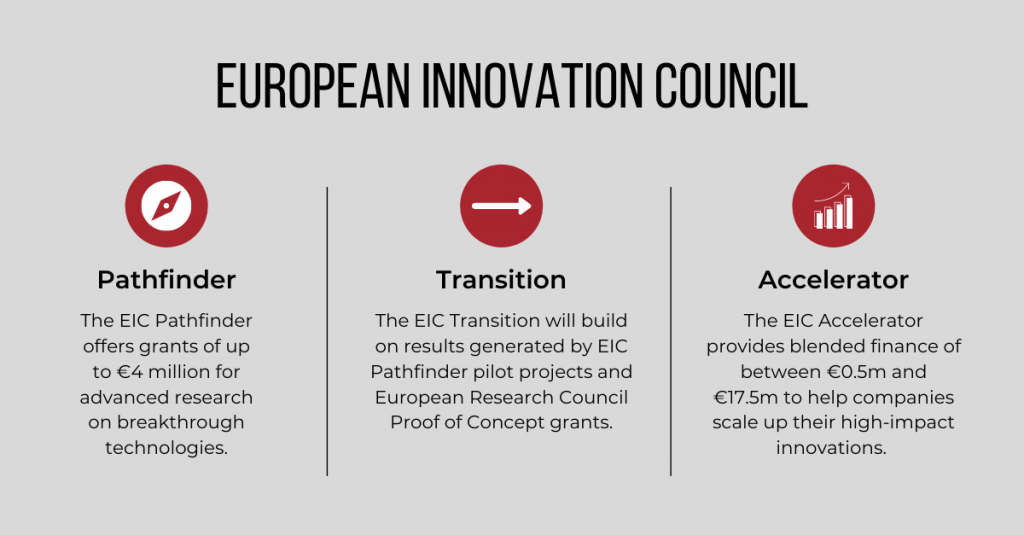NIHR i4i Product Development Awards
Applications are now open for the i4i Product Development Awards (PDA), run by the National Institute for Health Research. The PDA support translational research and development of medical devices, in vitro diagnostics, and high-impact patient-focused digital health technologies.
Application Process
All competitions under the i4i programme have a two-stage application process - only those successful at Stage 1 will receive an invite to proceed to Stage 2. Stage 1 opened on 14th April and will close on 9th June, with applicants set to receive the results of their submission by 10th August. Then, Stage 2 will launch with a deadline of 28th September.
Eligibility Criteria
Firstly, all projects must have demonstrated proof of concept and have a clear pathway towards adoption and commercialisation. They should last between 24 and 36 months. Applications can be led by SMEs, NHS providers or higher education institutions. However, eligible collaborations must consist of at least two types of organisation from the above list. For example, an SME may work in collaboration with an NHS service provider. In addition, the lead organisation must be registered in England.
The following activities may be eligible for funding from the Product Development Awards:
- Research and development of medical devices and in vitro diagnostic devices across all areas of existing or emerging healthcare need
- Digital health technologies that fall under Tier 3 of the NICE Evidence Framework for Digital Health Technologies, and that are focused on patient outcomes and intended for ultimate NHS use
- Artificial Intelligence (AI) technologies including Augmented or Ambient Intelligence, applied in areas of health and social care including health promotion and prevention, diagnosis and treatment
- Product development required to enable a technology for clinical use
- Research and development of techniques or technologies from a different industry sector, which could have a potential impact if applied in a healthcare setting
- Feasibility studies if developing a technology from a sector other than health
- Studies to provide data relating to safety and effectiveness of a device
- Clinical utility studies
- CE/UKCA marking and other regulatory requirements
- Activities associated with the technology’s market access strategy
- Training associated with the implementation of new technology
RedKnight’s team of grant funding consultants has over 50 years’ combined experience, accessing more than £50 million. If you’d like our help applying to the Product Development Awards, please get in touch.
Not the opportunity you’re looking for? You can find alternative competitions on our blog and in our free monthly newsletter.
£1.5 million available to develop assays for SARS-CoV-2 cellular immune responses
A new Small Business Research Initiative (SBRI) will fund the development of effective assay system approaches to measuring cellular immune responses to SARS-CoV-2. The competition is part of the Covid-19 National Core Studies programme.
Scope
The competition aims to develop effective approaches to measuring human cellular immune responses to SARS-CoV-2 natural infection or vaccines, to improve both clinical management and vaccine deployment. Funding is exclusively available for technical feasibility studies.
Assays that qualitatively and quantitatively measure the antibodies that recognise and neutralise SARS-CoV-2 are already available. However, assays to measure cellular immune responses rapidly and reproducibly are more limited.
Therefore, projects must develop a novel assay system that can define the magnitude and profile of T-cell immune responses to SARS-CoV-2. In addition, the project should focus on assays that work in a clinical or laboratory setting, whilst considering the ease, speed and reproducibility of sample preparation. Specifically, assays that use whole blood rather than requiring complex cell separation protocols are a priority.
Specific Themes
All projects must fulfil the following criteria:
- Have a defined and justified intended use (research, clinical or diagnostic) for the assay
- Identify, justify and if required validate the biomarkers or cellular characteristics you propose to measure
- Develop or evaluate a sample preparation and assay format able to sample and measure the biomarkers or cellular characteristics with the required performance, test procedure and operational characteristics for the intended use
Eligibility
Projects can start from 1st October 2021 and should last between 1 and 12 months. With £1.5 million available, Innovate UK expects to fund 3 projects with total eligible costs of up to £700k. Organisations of any size can lead a project. Contracts will only be awarded to single legal entities, but you can work with others from business, research organisations, research and technology organisations or the third sector as subcontractors.
For more information, visit the Innovate UK competition page. Alternatively, please contact us if you’d like to discuss an application with one of our advisers.
Not the opportunity you’re looking for? Sign up for our free monthly newsletter in order to receive the latest grant funding competitions direct to your inbox.
Funding available for innovation in time dissemination and application
 Innovate UK is working with the National Physical Laboratory (NPL) to invest up to £2 million in feasibility studies for innovation in the dissemination and application of resilient time, frequency and synchronisation (TFS). This funding is from the Strategic Priorities Fund (SPF).
Innovate UK is working with the National Physical Laboratory (NPL) to invest up to £2 million in feasibility studies for innovation in the dissemination and application of resilient time, frequency and synchronisation (TFS). This funding is from the Strategic Priorities Fund (SPF).
Scope
The competition objectives are as follows:
- Firstly, to support and enable business-led innovation across the UK supply chain in resilient TFS. As a result, this should lead to the development of products, services and end user applications.
- Secondly, to develop a TFS ecosystem and capability for relevant industries and critical national infrastructure.
- Lastly, to disrupt and create new markets to improve the provision of TFS.
Your project must deliver a feasibility study for an innovative development and demonstrate a route to market. It should also be scalable, either geographically or across applications. For additional information, including specific themes that your project might consider, click here.
Eligibility
Projects can start from 1st October 2021 and should last between 4 and 6 months. Eligible costs can range from £50,000 up to a maximum of £250,000. In addition, your organisation must fulfil the following criteria to work alone or lead a project:
- Be a UK registered business of any size
- If collaborative, partner with other UK registered businesses, research organisations, research and technology organisations (RTO), academic institutions, public sector organisations or charities
- Carry out its project work and intend to exploit its results from or in the UK
- Academic institutions and research organisations cannot lead an application or work alone
Innovation in time dissemination and application will open on Monday 19th April and close on Wednesday 9th June. You can find more information on the competition page. To book a free consultation with one of our advisers, please contact us today.
Not the opportunity you’re looking for? Subscribe to our free monthly newsletter in order to receive the latest grant funding competitions direct to your inbox.
DASA: Funding available to address challenges in defence and security
 The Defence and Security Accelerator (DASA) is a cross-government organisation, set up in 2016. The organisation provides grant funding for projects that support UK defence and security quickly and effectively.
The Defence and Security Accelerator (DASA) is a cross-government organisation, set up in 2016. The organisation provides grant funding for projects that support UK defence and security quickly and effectively.
Open Call for Innovation
DASA runs a regular open funding competition to find proposals that address challenges in defence and security. Ideas should be either a concept, technology, or service; if your proposal is a product, you should instead speak to the Defence Suppliers Service.
There are two main categories within DASA’s Open Call for Innovation:
1. Emerging Innovations
Firstly, this category is for less mature innovations. Typical projects will deliver a proof of concept at around TRL 3 or 4. In order to determine where your project sits on this scale, read our introduction to TRLs. There is no funding limit, however, DASA typically expects to award between £50k and £100k for projects that last between 3 and 10 months.
2) Rapid Impact
In contrast to ‘Emerging Innovations’, this strand is for more developed innovations. In more detail, eligible proposals will deliver a technology model or prototype demonstration at around TRL 6 or 7. DASA expects to fund bids between £100k and £350k but there is again no specified funding limit. In addition, proposals should have a realistic prospect of achieving an impact within a 3-year time frame.
Innovation Focus Areas
DASA’s Open Call for Innovation welcomes a wide range of innovative ideas in order to solve problems linked to defence and security. However, there are several key areas of interest, as listed below:
- Armoured fighting vehicle short gap crossing capability
- Integrate information and physical activity across all domains
- Delivering agile command and control
- Operate and deliver effects in contested domains
- Defence people - skills, knowledge and experience
- Simulating future battlespace complexity
The next deadlines for DASA’s Open Call for Innovation are 11th August 2021 and 20th October 2021. You can find more information, including how to apply, here. Alternatively, please contact us today if you’d like to discuss an innovative idea with one of our expert advisers.
EU Prize for Women Innovators 2021
 First launched in 2011, the EU Prize for Women Innovators celebrates female entrepreneurs across the EU and in countries associated to Horizon Europe. In 2021, the European Innovation Council will award three prizes of €100,000 each in the main category. Additionally, a fourth prize of €50,000 will be available for a ‘Rising Innovator’ aged 30 or younger.
First launched in 2011, the EU Prize for Women Innovators celebrates female entrepreneurs across the EU and in countries associated to Horizon Europe. In 2021, the European Innovation Council will award three prizes of €100,000 each in the main category. Additionally, a fourth prize of €50,000 will be available for a ‘Rising Innovator’ aged 30 or younger.
Eligibility Criteria
Applicants must be each of the following:
- A woman
- Established in an EU Member State or a country associated to Horizon Europe
- Founder or co-founder of an active innovative company registered at least two years before the submission deadline
- If applying within the Rising Innovator category, applicants must have been aged 30 or younger at the start of 2021
Previous Winners
Looking for inspiration? Check out last year’s winners of the EU Prize for Women Innovators!
- Madiha Derouazi (Switzerland), founder and CEO of Amal Therapeutics, a company developing therapeutic cancer vaccines
- Maria Fátima Lucas (Portugal), co-founder and CEO of Zymvol Biomodeling, a company developing computer-designed industrial enzymes by applying molecular modelling
- Arancha Martínez (Spain), co-founder and Managing Director of It Will Be. Her company helps tackle poverty through technological innovation and provides support to vulnerable women and children
- Lastly, the winner of the Rising Innovator 2020 prize was Josefien Groot (Netherlands), co-founder and CEO of Olavers. Her company is developing microstructures to boost the efficiency of wind turbines
Background: Gender Equality in European Research and Innovation
There are more women than men in Europe. Despite this, just 16% of European start-ups are founded or co-founded by women and only 6% have all-female founding teams (European Commission). As a result, the European Commission will prioritise gender equality through Horizon Europe, the new framework programme for research and innovation. The programme will introduce strengthened provisions, including:
- From 2022, all public bodies, research organisations and higher education establishments will need a gender equality plan to access Horizon Europe funding.
- Under the Widening Participation pillar, funding will be available for research and innovation organisations to develop their own gender equality plans.
- Flagship measures and activities promoting gender equality under the European Innovation Council (EIC). Targets include increasing the number of women-led companies invited to pitch their projects to 40%.
- The Commission will encourage gender balance in evaluation panels and among researchers involved in projects. This is particularly important, as it will be a potential tie-breaker for equally ranked proposals.
For more information on gender equality provisions in Horizon Europe, click here.
Applications for the EU Prize for Women Innovations 2021 are open until 30th June. Don’t forget to share this blog with any female entrepreneurs who might be interested!
EU missions in Horizon Europe: everything you need to know
EU missions are an important novelty of Horizon Europe, the new framework programme for research and innovation. There are five missions, each of which will tackle a major societal challenge: cancer; adaptation to climate change; oceans, seas and waters; climate neutral and smart cities; and soil health and food.
Importantly, the EU missions will also help to deliver key policy priorities, including the European Green Deal and the Beating Cancer Plan. In addition, they will address United Nations Sustainable Development goals, such as food and water security and biodiversity.
Conquering Cancer: Mission Possible
The mission aims to improve understanding of cancer, promote prevention, optimise diagnosis and treatment, and ensure equitable treatment across Europe. Overall, the mission aims to save more than three million lives by 2030 and help cancer patients to live longer and better lives.
A Climate Resilient Europe – Prepare Europe for climate disruptions and accelerate the transformation to a climate resilient and just Europe by 2030
In light of the global climate crisis, this mission will scale up climate-related innovations, build demonstration projects, create cross-border partnerships and trigger societal change centred on citizens.
Mission Starfish 2030: Restore our Ocean and Waters
By 2030, the EU aims to fulfil the following objectives: to clean marine and fresh waters, restore degraded ecosystems and habitats, and decarbonise the Blue Economy.
100 Climate-Neutral Cities by 2030 – by and for the citizens
Support will be available for 100 European cities in their systemic transformation towards climate neutrality by 2030.
Caring for Soil is Caring for Life
Soils are an important resource; if healthy, they provide food, clean water, and habitats for biodiversity, while also contributing to climate resilience. Therefore, the aim is for 75% of soils in each Member State to be healthy by 2030.
The five identified missions are currently in a preparatory phase, during which time the Commission will develop implementation plans. We expect the EU missions to launch later this year. To stay up to date on all the latest Horizon Europe news, keep an eye on our blog or sign up for our free monthly newsletter!
Source: European Commission
£20 million available for clean maritime and smart shipping projects
UK registered organisations can apply for a share of £20 million for clean maritime and smart shipping projects. By supporting the design and development of these technologies, the competition aims to reduce greenhouse gas emissions from the UK’s maritime sector. The funding is from the Department for Transport and delivered by Innovate UK.
Innovate UK is seeking solutions for all sizes and categories of maritime vessels. In addition, all ports and harbours are in scope, including infrastructure for both freight and leisure. There are two strands running at the same time:
Strand 1 – Feasibility Studies
In strand 1, projects must:
- Review the technical and economic feasibility of solutions to reduce greenhouse gas emissions
- Develop a clear plan for a future technology demonstration to be deployed after the feasibility project has been completed
For more information on project scope, including specific themes, click here. Total eligible costs can range from £25,000 to £1,000,000. Your project should start before 1st September 2021 and end by 31st March 2022, lasting up to 7 months in total.
Strand 2 – Industrial Research and Experimental Development
In this strand, projects must design, develop and test novel clean maritime or smart shipping technologies. They must reduce greenhouse gas emissions from both vessels and shore-side infrastructure at ports and harbours. You can find more information about the competition's scope on the Innovate UK website. Your project must have total eligible costs between £100,000 and £4,000,000. Again, your project can start any time from 1st September 2021 and should end by 31st March 2022.
The Clean Maritime competition is open from 22nd March until 2nd June 2021. If you’re thinking of making an application and are looking for bid writing support, please contact us today.
Not the opportunity you’re looking for? Subscribe to our free monthly newsletter in order to receive the latest opportunities direct to your inbox.
£10 million available to support the uptake of battery electric trucks
A new Small Business Research Initiative (SBRI) has launched to provide an innovative solution to enable fleets to switch to battery electric trucks. It is funded by the Department for Transport and delivered by Innovate UK. This is phase 1 of a potential 2-phase competition. Phase 1 projects must include data evaluation, test and demonstration involving a minimum of ten battery electric trucks. If phase 2 goes ahead, projects will involve further field testing and evaluation.
Scope
The competition aims to develop one or more innovative, interactive solutions to support the uptake of battery electric trucks. This should encompass both public and private sector fleet operations.
Your proposal must:
- Identify the costs and considerations around deploying commercially available zero emission trucks
- Demonstrate a credible and practical route to market
- Include a plan to commercialise your result and demonstrate how your solution will provide value
Your solution must:
- Ensure users understand both the strengths and weaknesses of deploying commercially available battery electric zero emission trucks
- Help users to 1) gain an understanding of the economic and practical feasibility of the technology and 2) de-risk, aid and encourage fleet operators to convert to battery electric vehicles
- Provide relevant information to help users make a range of decisions, for example, what to expect in terms of vehicle use and system performance to options for vehicle charging
Eligibility
In total, £10 million is available through this competition with the Department for Transport expecting to fund up to 3 projects. Phase 1 projects can last up to 10 months. Organisations of any size can lead a project and work alone or with subcontractors. You must also be able to provide or obtain access to suitable battery electric trucks to meet the real-time logistics demands of a UK public sector fleet operator. Finally, you should obtain and submit a letter of support from a UK public sector fleet operator
This competition is open between 22nd March and 21st April. If you’d like to discuss an application with one of our advisers, please get in touch. You may also be interested in Innovate UK’s Zero Emission Road Freight competition.
Zero Emission Road Freight: funding available for feasibility studies and industrial research
Innovate UK is investing up to £10 million in innovative projects that focus on zero emission road freight and its supporting infrastructure. This funding is from the Department for Transport as part of the commitments defined in the Government’s Ten Point Plan for a Green Industrial Revolution.
The competition has three strands running at the same time:
- Electric road system demonstration (feasibility studies) – strand 1.
- Hydrogen fuel cell vehicles demonstration (feasibility studies) – strand 2.
- Supply chain technology (feasibility studies and industrial research) – strand 3.
In addition, a related SBRI procurement competition is currently open, which aims to support the uptake of battery electric trucks.
Electric Road Systems
Funding is available for ambitious feasibility studies into an electric road system demonstration. The system should be suitable for 44 tonne zero emission road freight. In this strand, projects must have total eligible costs from £500,000 to £2 million and take place between 1st July 2021 and 31st March 2022.
Hydrogen Fuel Cell Vehicles
UK registered organisations or businesses can apply for funding for feasibility studies into a future zero emission road freight demonstration of hydrogen fuel cell trucks. Eligible costs must be between £500,000 and £2 million while all projects should again take place between 1st July 2021 and 31st March 2022.
Supply Chain Technology
Lastly, funding is available for advanced feasibility studies and industrial research in supply chain technology. All proposals must address the challenges associated with the transition to zero emission road freight. Secondly, they should define a solution to the technical challenges to developing or operating zero emission trucks. Your total eligible costs should be between £100,000 and £250,000.
Each of the three stands will close on 5th May 2021. If you’re short on time and therefore looking for grant writing support, please contact us to arrange a free consultation.
Interested in grant funding but not the right competition for you? Subscribe to our free monthly newsletter in order to receive the latest opportunities direct to your inbox.
The European Innovation Council is officially launched
The European Commission has officially launched the European Innovation Council under Horizon Europe, following a three-year pilot phase under Horizon 2020. The agency has a budget of €10 billion for 2021-2027 to develop and scaleup breakthrough innovations. This makes the EIC the most ambitious step the EU has ever taken in the field of innovation.
The agency will support the EU’s overall strategy in building back better from Covid-19. Areas of focus include digitalisation, as well as the green agenda, climate change and sustainability. In addition, the EIC seeks to overcome biases in innovation, including those against women and poorer regions of the EU. This is reflected in the new EIC Prizes.
The first annual work programme of the EIC is now available, making funding of over €1.5 billion available for 2021. You can find more information on each of the main calls below:
EIC Accelerator
Firstly, the EIC Accelerator has €1bn available to help start-ups and SMEs bring their innovations to market and scale up. Under Horizon Europe, the EIC Accelerator features a new, simplified application system. Start-ups and SMEs can submit a short application at any time.
It provides a unique combination of blended finance, with both equity and grant funding available*. Half of the available funding will support the Green Deal, digital technologies, and health innovation.
*Please note that UK entities are only eligible for the grant component.
EIC Pathfinder
Secondly, the EIC Pathfinder will fund advanced research on breakthrough technologies. Grants are available for consortia of at least 3 partners, each of which should be established in a different Member State (or Associated Country).
The programme has a budget of €300 million, with individual research teams eligible to apply for up to €4 million in grant funding. The majority of the programme’s budget will be allocated through open calls. However, €132 million will tackle five Pathfinder challenges: self-aware artificial intelligence, tools to measure brain activity, cell and gene therapy, green hydrogen, and engineered living materials.
EIC Transition
Thirdly, the EIC Transition aims to bridge the gap between research and innovation by increasing your project’s market and technology readiness. The first call will focus on promising results generated by EIC Pathfinder pilot projects and European Research Council Proof of Concept projects.
All projects funded by the European Innovation Council will also have access to Business Acceleration Services. This includes access to coaches, mentors and expertise, partnership opportunities with corporates and investors, and a range of services and events.
European Innovation Council Prizes
- EU Prize for Women Innovators
- European Capital of Innovation Awards (iCapital)
- European Social Innovation Competition
- The European Innovation Procurement Awards
The EU Prize for Women Innovators and the European Capital of Innovation Awards are now open for applications. The other EIC Prizes will open later this year.
How RedKnight can help
RedKnight aims to make innovation funding as simple as possible for tech-based startups and SMEs. Since our launch in 2015, we have secured over £9.9 million of grant funding! If you’d like to discuss a project with one of our advisers, please contact us to arrange a free consultation.

